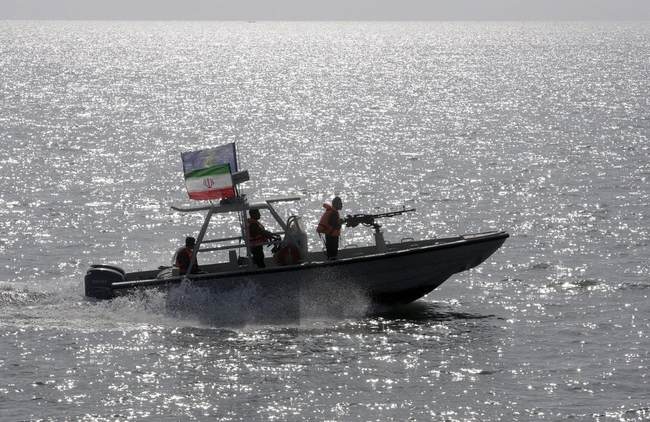The Islamic Revolutionary Guard Corps seized the Marshall Islands-flagged oil tanker Talara in the Straits of Hormuz at 8:22 a.m. local time on Friday, marking a serious escalation in maritime harassment that follows prior IRGC actions earlier this year.
IRGC naval units boarded the merchant tanker while it was roughly 25 miles off the coast of the United Arab Emirates, according to maritime tracking. The ship had loaded crude oil in Sharjah and was bound for Singapore when three smaller Iranian vessels closed in and personnel came aboard the deck.
The vessel in question sailed under a Marshall Islands flag of convenience and is listed as operated by a Cypriot company and owned by a Cyprus-based holding. The owner is identified as Pasha Finance, Inc., which has been linked to the family of Azerbaijan’s president Ilham Aliyev in public reporting. Flags of convenience are common in global shipping and create legal and security gray areas that opportunistic states can exploit.
As the boarding unfolded, a U.S. MQ-4C Triton drone was observed circling the tanker, offering overhead surveillance while the incident developed. The hijacked ship has since been taken into Iranian waters, and its future movement is currently controlled by Iranian naval forces. At present, Iranian authorities have not offered a coherent motive beyond the IRGC’s operational claim.
The United States maintains a “defense partnership” with the Marshall Islands under the Compact of Free Association, which covers cooperation on maritime security and training. That compact does not automatically extend protection to every vessel that flies a Marshall Islands flag, particularly when ownership and operation are tied to third-party companies and foreign interests.
Iran has repeatedly targeted vessels with Marshall Islands registration in recent years, either directly through IRGC actions or indirectly via proxies such as the Houthis. Those prior incidents set a precedent: ships taken in these sorts of operations are often lost to their owners, even if crew members are later released.
This latest seizure follows a pattern that began with earlier high-profile boardings and captures, including the April 13, 2024, takeover of the container ship MSC Aries by IRGC units. That incident demonstrated Tehran’s willingness to assert control over commercial traffic in and near the Strait of Hormuz, a chokepoint that handles a significant share of the world’s oil shipments.
Commercial shipping companies routinely use complex ownership and operating arrangements to lower costs and diffuse liability, but that complexity also complicates diplomatic and military responses. When a vessel flagged under one authority is owned, insured, and operated through entities in multiple countries, coordinating a response becomes a tangle of legal, diplomatic, and operational questions.
From a security standpoint, the seizure underscores how permissive rules of engagement and unclear deterrents invite further aggression. Iranian forces have shown they can board and remove a vessel without immediate escalation, and until there are consistent consequences, those tactics will keep working. The international community must recognize that maritime coercion anywhere in that region threatens global trade and energy stability everywhere.
There are also practical concerns for ship crews and insurers. Crews taken from seized vessels often face weeks of uncertainty before release, and insurers may declare the vessel a constructive total loss if control is not quickly restored. The economic ripple effects reach ports, refineries, and markets that rely on predictable deliveries of crude and refined products.
Operationally, the U.S. and partner navies can monitor and shadow vessels with long-endurance drones and nearby surface assets, but surveillance alone has not deterred boarding actions. A credible deterrent requires clear policy decisions about interdiction, seizure recovery, and the consequences for vessels and entities that profit from flags of convenience when those flags are used to evade national protections.
Iran’s behavior in the Gulf is a strategic blend of asymmetric tools and plausible deniability, and state actors exploiting the maritime domain will continue those tactics until costs outweigh benefits. The seizure of the Talara is another reminder that freedom of navigation depends on more than words; it demands consistent enforcement and an understanding of how commercial practices interact with geopolitical risk.
Unless maritime insurance, flag registries, and international partners adjust their policies and responses, merchant shipping will remain vulnerable to further seizures and harassment in the region. History suggests the crew may be released after weeks, but the ship itself may never return to its prior commercial operations under the same ownership or flag.





Add comment